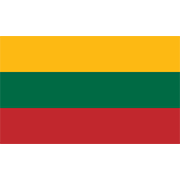Fiscal subject related
But it is important to state that cash registers need to comply with the technical requirements established by the State Tax Inspectorate under the Ministry of Finance (STI). Cash registers need to be installed in places where persons pay for the goods or services sold (purchased) to them in cash. Every cash register must be registered with the State Tax Inspectorate (STI) indicating the address of its installation or the address of the registered office or branch or other subdivision.
At the end of the business day, the daily reports (Z) must be printed, signed by a responsible person authorized by the head of the undertaking and stored together with the printed monthly reports
Also, the law defines the mandatory element of different kinds of fiscal and non-fiscal documents: Fiscal receipt, non-fiscal receipt, Z report, X report, periodic reports, invoices, simplified invoices, the situation when there is a cancellation of the transaction, return, item exchange, etc.
But according to announcements from Lithuanian authorities, this will change soon From 2023 Lithuania will be presented fiscal devices with new upgraded components, which will bring some novelties regarding mandatory parts of fiscal devices, certification procedure, communication with the Tax authority, QR code, and some new elements on receipt, and another mandatory requirement, form the legal and also technical part, so stay tuned!
Other news from Lithuania
Lithuania begins shift toward EU-compliant Structured E-Invoicing
 Lithuania
Author: Nikolina Basić
Lithuania
Author: Nikolina Basić
Lithuania plans to implement nationwide structured e-invoicing by 2028, using the EU standard EN 16931 and aligning with the 2030 VAT in the Digital Age reforms. The system will likely adopt a 5-corner model with real-time reporting to the SABIS platform, building on its existing eSąskaita B2G infrastructure and offering free API-based tools for businesses. Lithuania has set its sights on a full-s... Read more



New document was uploaded: EV-chargers from the Fiscalization Perspective in Lithuania
 Lithuania
Author: Nikolina Basić
Lithuania
Author: Nikolina Basić
The purpose of this document is to explain rules regarding the treatment of EV chargers for electric vehicles from a fiscalization perspective. We will explain whether EV chargers need to contain cash registers and other fiscal requirements or not, is it maybe part of the e-invoicing rules, or are they exempt from those obligations? Read more
Subscribe to get access to the latest news, documents, webinars and educations.
Already subscriber? Login


Lithuania introduces the Tax sweetened beverages starting January 2026.
 Lithuania
Author: Nikolina Basić
Lithuania
Author: Nikolina Basić
Starting January 2026, Lithuania will introduce excise duties on sweetened beverages, including soft drinks, flavored waters, and concentrates with added sugar or sweeteners, under Law No. XV-286. The tax applies to both domestic production and imports for business use, with exemptions for medical products, infant formula, and non-packaged drinks from restaurants or cafes. The Lithuanian governmen... Read more



The Lithuanian parliament approves a new VAT structure effective January 2026
 Lithuania
Author: Nikolina Basić
Lithuania
Author: Nikolina Basić
Lithuania will introduce a revised VAT structure from January 1, 2026, adding new reduced rates of 5% and 12% while abolishing certain exemptions to help fund defense initiatives. Notable changes include lower VAT on books, higher rates for transport and cultural services, and a return to the standard 21% VAT for heating and firewood, with compensation measures planned for vulnerable households. L... Read more



Lithuania proposes changes to VAT rates across sectors.
 Lithuania
Author: Nikolina Basić
Lithuania
Author: Nikolina Basić
Lithuania is reviewing VAT law amendments that would increase the reduced VAT rate from 9% to 12% for services like accommodation, regular passenger transport, and cultural events starting January 1, 2026. A new 5% VAT rate is also proposed for printed and electronic books and certain non-periodical publications, down from the current 9%. The Parliament is expected to vote by July 1, 2025, and bus... Read more



New webinar was uploaded: Recorded webinar: Fiscalization and online sales in European countries
On May 15th, 2025, Fiscal Solutions organized a free webinar on the topic of "Fiscalization and online sales in European countries". The webinar was held by Fiscal Solutions Legal Consultant Nikolina Basić. Let’s delve deeper into this topic! Read more
Subscribe to get access to the latest news, documents, webinars and educations.
Already subscriber? Login


Lithuania Clarifies Cash Rounding Rules
 Lithuania
Author: Ema Stamenković
Lithuania
Author: Ema Stamenković
Lithuania's new cash payment rules clarify that only the total amount paid in cash is rounded, while 1 and 2 euro cent coins remain legal tender and must still be accepted by merchants. These coins can be used for change or exchanged at the Bank of Lithuania, which offers free services for individuals and businesses to reduce their circulation. Cash payments in Lithuania are rounded to the nearest... Read more


